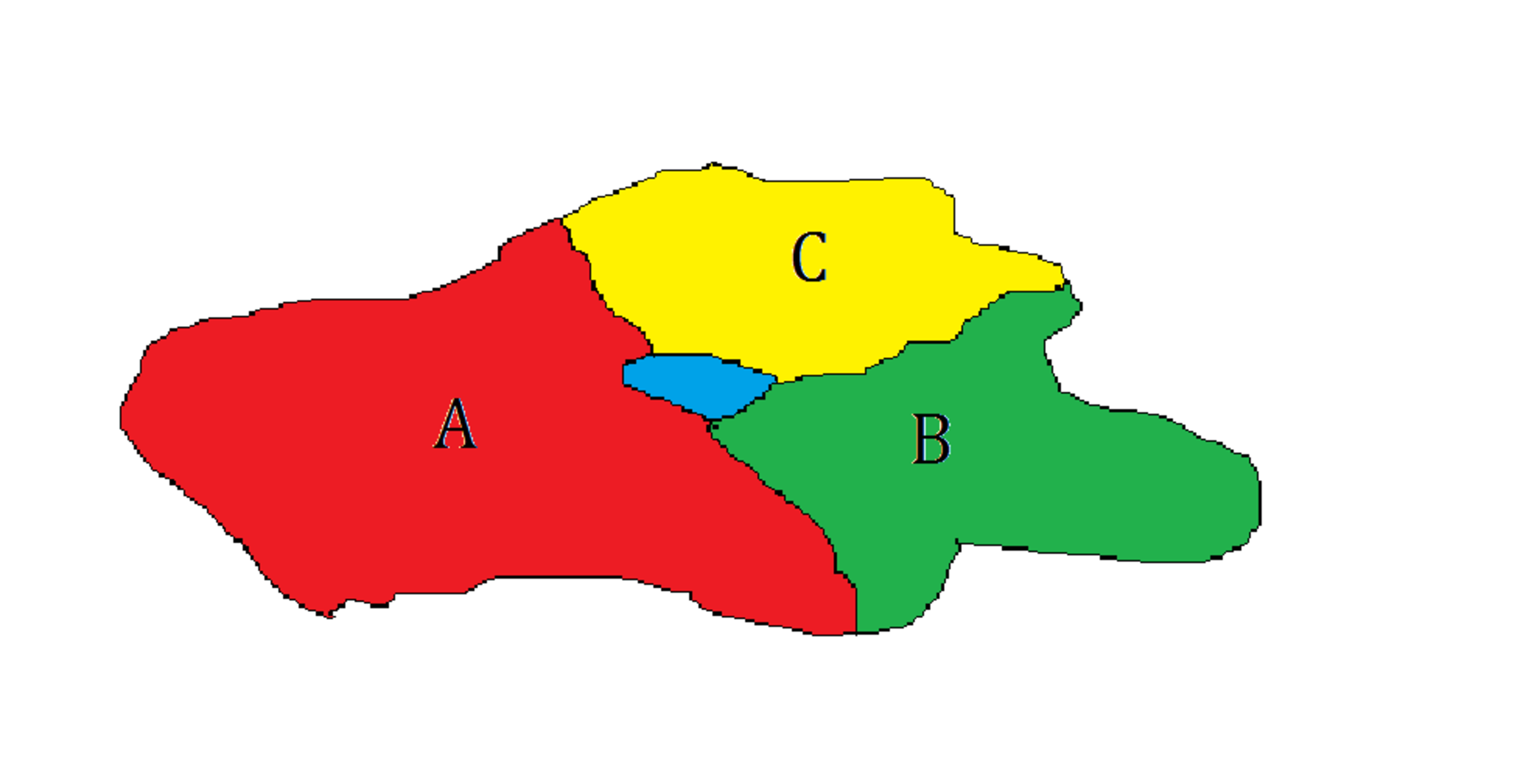Prime Lands

A rich landlord had divided a big piece of land for his sons, , so that each colored land had a prime area (in ) while the big lake in the middle would be shared among the brothers, as shown above.
If the lake and A's areas were combined, it would cover of the whole land.
If the lake and B's areas were combined, it would cover of the whole land.
If the lake and C's areas were combined, it would cover of the whole land.
Let primes be the numerical values of the areas for the 3 owners respectively. Compute .
The answer is 385.
This section requires Javascript.
You are seeing this because something didn't load right. We suggest you, (a) try
refreshing the page, (b) enabling javascript if it is disabled on your browser and,
finally, (c)
loading the
non-javascript version of this page
. We're sorry about the hassle.
Let x be total land mass and d be the lake's area. Then a + b + c + d = x .
Also, a + d = 2 x .
b + d = 3 x
c + d = 4 x
Hence, adding up 3 equations, a + b + c + 3 d = x + 2 d = 2 x + 3 x + 4 x = 1 2 1 3 x .
Thus, 2 d = 1 2 x . d = 2 4 x .
Then a = 2 4 1 1 x . b = 2 4 7 x . c = 2 4 5 x .
Since a , b , c are prime, they can't have common factor, making x = 2 4 .
Therefore, a = 1 1 ; b = 7 ; c = 5 ; d = 1 .
Then a b c = 3 8 5 .